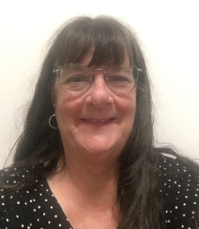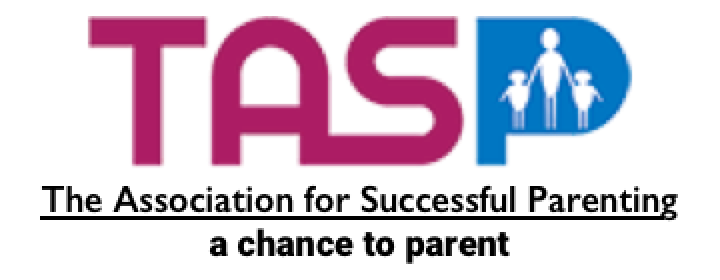February 2, 2022
Good Enough Parenting: What it means to me and how it can improve outcomes for parents with IDD.
Written by Susan Jones
Last month I had the opportunity to present a webinar for TASP, called Good Enough Parenting (find it HERE if you missed it). From the initial preparation until now, the topic remains on my mind. To tell the truth, it’s been on my mind since I was pregnant with my first child, and throughout my own parenting journey. I know many of us strive to be the “perfect” parent; I know I did. We also know that’s an almost impossible task. Ultimately, we hope that our parenting is good enough to ensure our children are loved, nurtured, and have their needs met.
My first-born child was born 4 weeks early and weighed only 4.6 pounds, and we needed to stay in the hospital until his weight hit 5 pounds. He did, and oh, the joy and terror of being able to bring our little 5-pound baby home! After arriving home, we had a visiting nurse come the next day (and regularly for the following month) for a weight check, to see if we needed anything, to view our setup for the baby, and to give suggestions and answer any questions. We were so worried before she came, and ultimately, so relieved that we made it to her visit the next day and had done what we were supposed to do. What would have happened if he hadn’t gained weight? Or she didn’t like our setup? Or didn’t think we were doing a good enough job? Luckily, the baby was doing great, and to our relief we survived the night and her visit.
It was during that experience that I began questioning my own parenting abilities. Was I good enough? Could I do it? I suddenly had a much deeper empathic connection to the parents with IDD that I was already supporting through my work as a family support worker. I realized that if I was as unsure of my ability to be a good enough parent, how must it feel for parents without the opportunities or support that I was fortunate enough to have? None of us do this alone, none of us are perfect, but we all try our best.
For over 35 years I have had the honor to work with parents living with IDD. I never had a parent say to me “I want to be a bad parent,” but rather, “I want to be the best parent I can be to my children,” and “I will do whatever it takes to keep them safe, healthy and keep them with me.” Despite what I’ve heard from parents with IDD over the years, I have often seen that the assumption of competence and love is not always supported in the child welfare system. It’s a system that only helps when there is a crisis and the potential of the child being removed from the home. Rarely preventative, always reactive.
According to the National Council on Disability Report: Rocking the Cradle (2012), 40% to 80% of parents with IDD will lose custody of their children. As many as ⅔ of children once removed from a parent with IDD won’t be reunified, but will stay in the system, or for a few, get adopted. I have watched parents living with IDD overcome major challenges to regain custody of their children, and I have watched some lose their children to the system and not regain custody or contact until the child reaches 18 years old. There must be a better way and we must do better for parents with IDD and their children.
In April of 2019 I had the opportunity to attend the National Conference on Child Abuse and Neglect/NCCAN. I was attending an afternoon session in a room with over 500 people (those were the pre-COVID days!). The topic was around how the current child welfare system isn’t effectively serving families, and specifically that children end up in the system, resulting in the breakdown of the biological family. Children’s safety always comes first, but, if possible, the goal should always be to keep the family unit together, and work on the concerns within that family unit. Helping families live together in a healthy, safe environment results in better outcomes for children than those that have grown up in the child welfare system. By the time the session was over, everyone was on their feet, clapping and cheering in agreement with the hope of better outcomes fresh in their minds. It was a wondrous and joyous cross of a revival and a rock concert. I literally had tears running down my checks. I had never experienced anything like this before at a conference. We can do better for parents with IDD.
We cannot expect perfection from any parents. It is an unattainable standard that no parent should be held to. We must also realize that no one parents alone because everyone, at one time or another, need help. It is not a sign of weakness, but strength, to ask for help when needed. Yet parents with IDD are often penalized when asking for help or are seen as not capable of parenting if they ask for help. We all need to remember, in our own lives, and when working with parents with IDD, that the standard is to be a Good Enough Parent, not a perfect parent.
Just as with any parent, some parents will be good, and others will not. It is not to say that children never enter the child welfare system, but if we could keep families together, using foster care as a last resort, and only to address immediate safety concerns, that would undoubtedly improve outcomes for parents with IDD and their children. All families need effective support, allowing them to realize their full potential, and recognize that they are good enough parents because their children are healthy, growing and having their basic needs met. Isn’t that the best option?
If you want to join TASP for other webinars in 2022, find out more HERE. Do you want to learn more about supporting parents with IDD? Find out about the training we offer HERE, or email us at info@achancetoparent.net and let us know how we can help.
About Susan Jones

Susan Jones is the former Department Director at The Arc United, Turners Falls, Massachusetts, co-developing Positive Parenting which provides a variety of comprehensive parenting education, support programs to parents with learning differences.
She holds a BS in rehabilitation from Springfield College and a master’s level certificate in parenting education from Wheelock College.
Sue founded the New England Coalition for Supporting Parents with Cognitive Challenges and is a principal founder and former co-president of The Association for Supported Parenting and currently a Senior Board Member and TASP trainer.
For the last several years she has been contracted through The Children’s Trust Fund of Massachusetts and The Department of Children and Families to present training across the state focusing on working with parents with intellectual disabilities.
Since retiring she has been working as an Independent Consultant. She is consulting with The United Arc, Greenfield Housing Authority as well for a research project with Brandeis University. She continues to be a member of the MA Partnership for Supporting Parents living with IDD.

